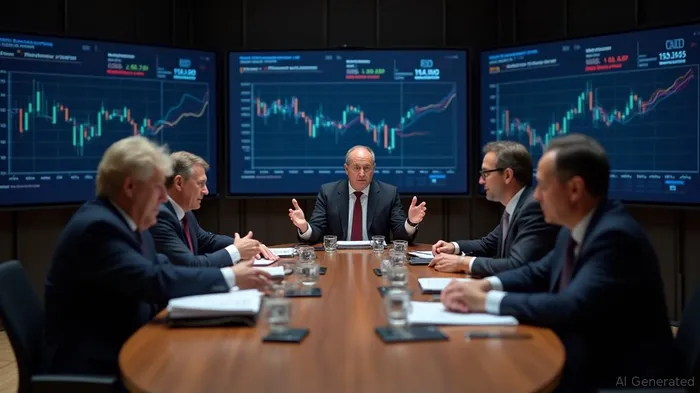ECB Cuts Key Rates by 25 Basis Points to Stabilize 2% Inflation Target
The European Central Bank (ECB) has announced a reduction of its three key interest rates by 25 basis points, effective from June 11, 2025. This decision comes as the ECBECBK-- aims to stabilize inflation at its 2% medium-term target, considering the current economic landscape marked by significant trade policy uncertainty. The deposit facility rate, which guides the monetary policy stance, has been lowered to 2.00%, the main refinancing operations rate to 2.15%, and the marginal lending facility rate to 2.40%.
The ECB's decision is underpinned by its updated assessment of the inflation outlook, the dynamics of underlying inflation, and the strength of monetary policy transmission. Inflation is currently at around the ECB's 2% target, with projections indicating it will average 2.0% in 2025, 1.6% in 2026, and 2.0% in 2027. These projections reflect lower assumptions for energy prices and a stronger euro, which have led to downward revisions compared to the March projections. Core inflation, excluding energy and food, is expected to average 2.4% in 2025 and 1.9% in 2026 and 2027, remaining largely unchanged since March.
Real GDP growth is projected to average 0.9% in 2025, 1.1% in 2026, and 1.3% in 2027. While the growth projection for 2025 remains unchanged, it reflects a stronger-than-expected first quarter combined with weaker prospects for the remainder of the year. The ECB acknowledges that trade policy uncertainty will weigh on business investment and exports, particularly in the short term. However, rising government investment in defense and infrastructure is expected to support growth over the medium term. Higher real incomes and a robust labor market will also enable households to spend more, making the economy more resilient to global shocks.
The ECB has assessed various scenarios to understand how different trade policies could affect growth and inflation. Under a scenario of escalating trade tensions, growth and inflation would fall below baseline projections. Conversely, if trade tensions are resolved favorably, growth and inflation would exceed baseline projections. The ECB's staff projections indicate that underlying inflation measures suggest inflation will stabilize around the 2% target on a sustained basis. Wage growth, though still elevated, continues to moderate, and profits are partially buffering its impact on inflation.
The ECB is committed to ensuring that inflation stabilizes sustainably at its 2% target, especially in the current environment of exceptional uncertainty. The Governing Council will adopt a data-dependent and meeting-by-meeting approach to determining the appropriate monetary policy stance. The ECB's interest rate decisions will be based on its assessment of the inflation outlook, incoming economic and financial data, the dynamics of underlying inflation, and the strength of monetary policy transmission. The ECB is not pre-committing to a particular rate path and stands ready to adjust all of its instruments within its mandate to ensure price stability and the smooth functioning of monetary policy transmission.
The ECB's Asset Purchase Programme (APP) and Pandemic Emergency Purchase Programme (PEPP) portfolios are declining at a measured and predictable pace, as the Eurosystem no longer reinvests the principal payments from maturing securities. The Transmission Protection Instrument is available to counter unwarranted, disorderly market dynamics that pose a serious threat to the transmission of monetary policy across all euro area countries. The ECB's President will provide further insights into these decisions at a press conference.

Quickly understand the history and background of various well-known coins
Latest Articles
Stay ahead of the market.
Get curated U.S. market news, insights and key dates delivered to your inbox.



Comments
No comments yet